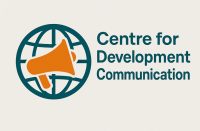Residents of the Mpape community located at Bwari Area Council, five kilometres away from Abuja city centre have begun questioning social distancing considering that in some instances, 11 persons live in a single room.
At the Ajegunle area of the informal settlement, Miss Blessed Okhar, a resident told MAWA FOUNDATION that in many of the houses, over 11 to 12 persons are living in a room.
Okhar said in some places you will find a family of seven children, father mother, and relatives living inside a single room.
Another resident Mrs. Abigail Odinma, while speaking to MAWA, showed our team a room located close to hers at the Ajegunle area which she claims is housing over 10 ladies.
Mr. Amos Nduka, a resident, told NAWA that it is very difficult to implement social distancing at Mpape, pointing out that the community is heavily overcrowded with a high rate of unhygienic environment.
Nduka added that many residents of Mpape are hoping for God not to be infected with Coronavirus, pointing out that relying on social distancing as means of containing the virus in the community is not an option because that will not work.
According to Nduka, the condition in Mpape does not allow for a social distancing
“If you doubt, come at night, I will show you many rooms that are harbouring over 12 persons, how will government implement social distancing in such a situation,” Nduka said.
Some of the residents who spoke to MAWA do not believe that coronavirus exists while some accused the government of using the disease to steal public funds.
“You see this coronavirus business, it is a scam, the government has just found another means to steal public funds using the pandemic as a cover” Mrs. Jude Ndem, told MAWA
“Everybody knows Coronavirus is a scam, even you talking to me know it is a scam” he added.
Worse still, the government has appealed to the citizens to observe social distancing as a means of containing the coronavirus.
An approach Mpape residents have said it is difficult to implement at the community pointing at the overcrowded nature of the environment.
This report is supported by the Open Society Initiative for West Africa OSIWA
